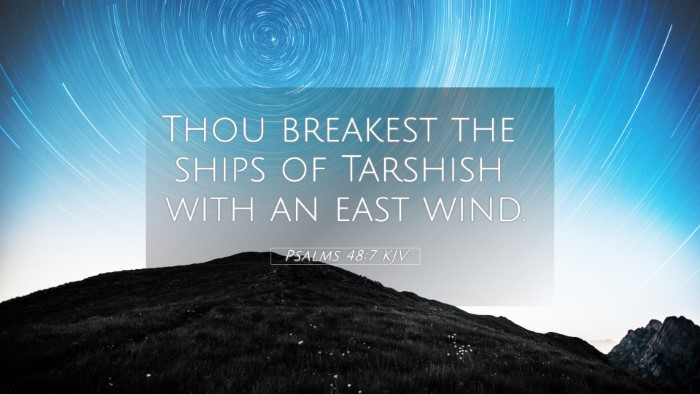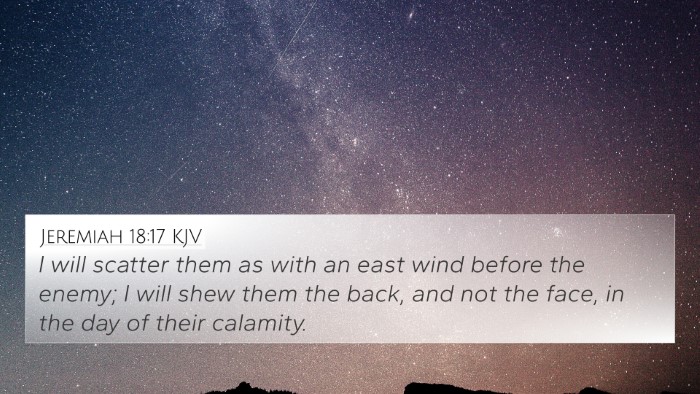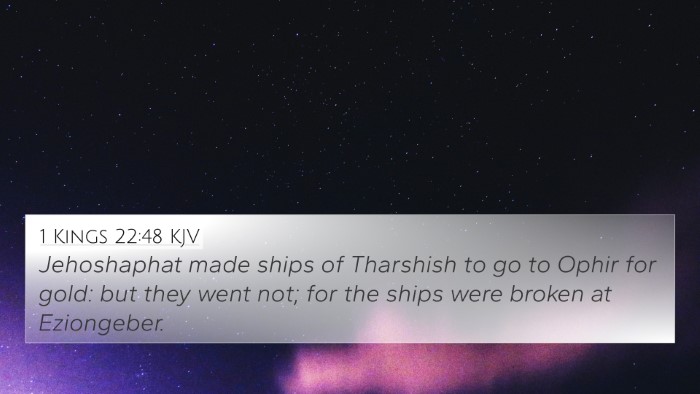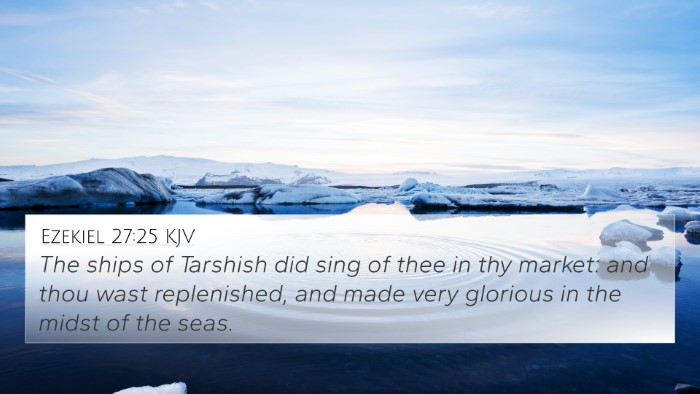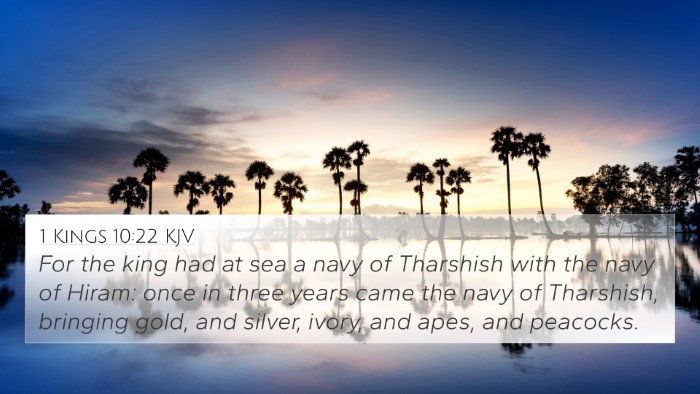Understanding Psalms 48:7
The verse Psalms 48:7 states: "Thou breakest the ships of Tarshish with an east wind." This verse encapsulates a powerful image of God's sovereignty and intervention in the affairs of men, particularly in the realm of nature and sea travel. Below, we analyze its meaning through insights from public domain commentaries by Matthew Henry, Albert Barnes, and Adam Clarke.
Commentary Insights
Matthew Henry's Commentary
Matthew Henry highlights the divine authority and power exhibited in nature through this verse. He interprets the "ships of Tarshish" as symbols of wealth and trade, representing human endeavors and reliance on material possessions. The destructive force of the "east wind" symbolizes God's ability to thwart human pride and independence, reminding us that ultimately, God is in control of all creation.
Albert Barnes' Notes
Albert Barnes elaborates on the geographical context of Tarshish, often identified with the distant lands known for trade. He emphasizes that the catastrophic impact of the east wind illustrates God's might against the adversaries of His people. It is a reminder that God can bring swift judgment upon those who oppose Him, reinforcing the theme of divine protection for Israel.
Adam Clarke's Commentary
Adam Clarke discusses the word "break" as indicative of total destruction or defeat. He infers that the perils faced by ships can mirror the struggles of individuals against overwhelming odds. Through divine intervention, what seems formidable can be dismantled in an instant, underscoring a key biblical theme: God’s rulership over all, even the mightiest of human endeavors.
Connecting Themes and Cross-References
In exploring Psalms 48:7, it is important to acknowledge various related verses that expand the understanding of divine authority and intervention. Here are some cross-referenced scriptures:
- Psalm 107:25-29 - This passage relates to God's ability to calm storms and provide safety, mirroring the maritime elements in Psalms 48:7.
- Isaiah 43:2 - Here, God promises protection through waters and fires, echoing the theme of His sovereign care amidst turmoil.
- Matthew 8:26-27 - Jesus, calming the storm, demonstrates His authority over nature, similar to the divine intervention noted in Psalms 48:7.
- Jonah 1:4 - The Lord sends a great wind on the sea in response to Jonah’s flight, showcasing divine control over nature.
- Job 38:11 - God defines the boundaries of the sea, affirming His supremacy over natural elements, relevant to the "east wind" in Psalms 48:7.
- Proverbs 21:30 - This verse emphasizes that no one can stand against God’s will, paralleling the overwhelming forces represented by the wind.
- Psalm 46:1-3 - God is described as a refuge and a very present help in trouble, akin to the protective imagery underlying Psalms 48:7.
Inter-Biblical Dialogue
This psalm invites readers to engage in a comprehensive study of biblical texts that address themes of divine sovereignty, protection, and judgment. The connections between these verses not only reinforce core theological principles but also invite deeper reflection on the nature of faith amidst challenges:
- Connecting Themes: Readers are encouraged to ponder how hardships are often met with divine strength, as illustrated in both the Old and New Testaments.
- Bible Verse Parallels: The tests of faith encountered by biblical figures resonate with the chaos faced by the "ships of Tarshish," creating a dialogue across scripture.
- Thematic Bible Verse Connections: Each cross-reference contributes to a larger understanding of God's providential care and overarching authority, urging believers to find comfort in God's promises.
Practical Tools for Bible Cross-Referencing
Utilizing tools for cross-referencing can enrich your understanding of scripture. Here are some methods and resources:
- Bible Concordance: An invaluable tool for finding keywords in the Bible, aiding in discovering connections between passages.
- Cross-reference Bible Study: Engaging in thematic studies encourages deeper exploration of related scripture passages.
- Bible Cross-reference Guide: Helpful in tracking the themes and the narrative connections that transcend individual verses.
Conclusion
Psalms 48:7 provides a vivid depiction of God's control over natural elements and serves to remind readers of His ultimate authority. By exploring related scriptures through cross-references, believers can gain a more profound understanding of the text and find encouragement in God's sovereign power. This psalm, alongside its connections and theological themes, offers a wealth of insight into the nature of faith and the divine.

